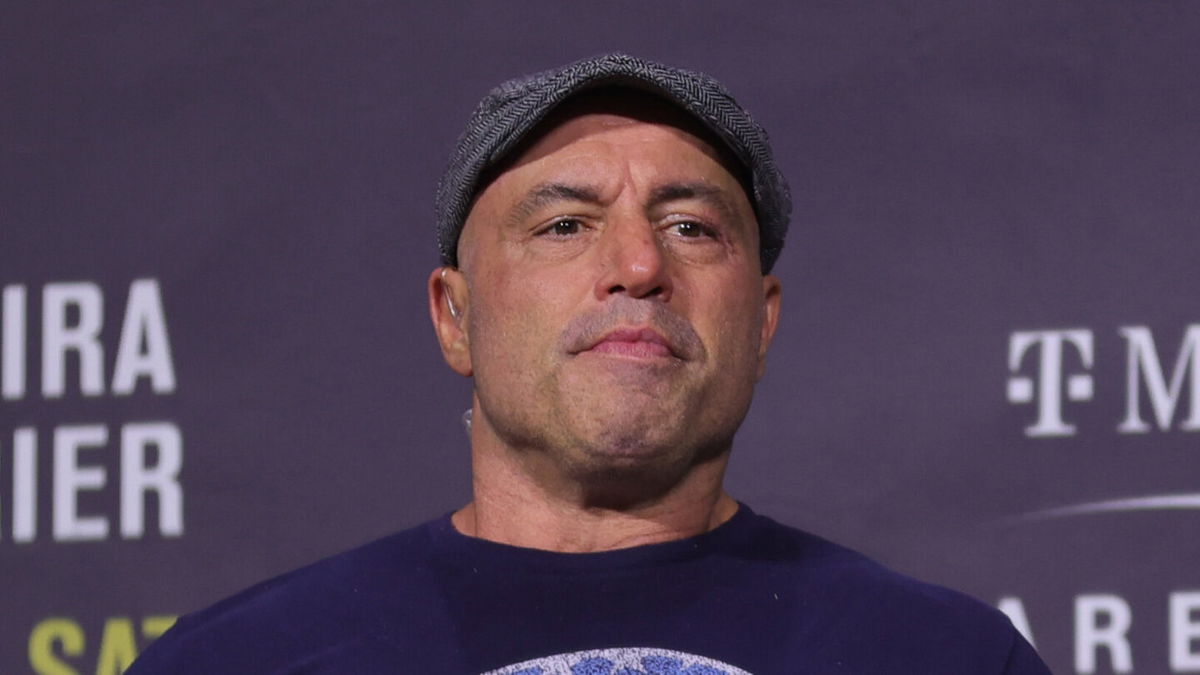Joe Rogan’s path from reality host to Covid controversy king

By Allison Morrow, CNN Business
If Joe Rogan wasn’t already a household name before last week, he almost certainly is now.
His Spotify-based podcast’s Covid commentary created a backlash that led several musicians and customers to boycott the platform.
So, who is Rogan?
He’s someone who requires a lot of slashes: Comedian/commentator/podcast host/media personality.
Rogan, whose website describes him as “mixed martial arts fanatic” and “psychedelic adventurer” among other things, was a regular color commentator for the MMA promoter Ultimate Fighting Championship in the early 2000s. He gained national attention around the same time as the host of NBC’s “Fear Factor” reality series.
To call Rogan polarizing would be an understatement. To his fans, he’s a bold and curious mind at work, using his podcast to investigate and elevate ideas considered controversial or fringe by the mainstream.
To his critics, he’s a reckless peddler of dangerous conspiracy theories, haplessly giving oxygen to radical ideas.
Here are some key things to know about him, and why he and Spotify have found themselves under intensifying scrutiny.
‘The Joe Rogan Experience’
Rogan hosts “The Joe Rogan Experience” podcast, where he interviews a wide range of guests, such as comedians, scientists and business leaders.
Rogan built his brand on his willingness to interview people who’d been kicked off other social media, such as the far-right conspiracy theorist Alex Jones. The show has built an avid fan base, along with legions of detractors, since it launched in 2009.
In 2018, the podcast famously (or notoriously) made headlines when Tesla CEO Elon Musk appeared, sipping whiskey and smoking weed with Rogan for a bizarre, 2.5-hour live interview.
In 2020, Spotify struck a reported $100 million deal to secure exclusive licensing rights to Rogan’s show — one of the largest acquisitions ever in the podcasting space.
Covid misinformation
More recently, Rogan has been under fire for his skepticism around Covid-19 and the public health protocols in place to fight it.
In December, Rogan hosted Robert Malone, a doctor who was suspended from Twitter for spreading Covid misinformation. During the show, Malone made several baseless claims, including that Covid vaccines can put people who’ve had the virus at higher risk. He also espoused an unfounded theory known as “mass formation psychosis,” which suggests that much of the population has been hypnotized to follow Covid protocols. Multiple psychologists told the Associated Press the theory is no support for the psychosis theory.
Rogan has also endorsed using ivermectin, an anti-parasitic medicine, as a treatment for Covid, despite repeated warnings from US health officials. (When unvaccinated quarterback Aaron Rodgers contracted Covid, he said he consulted with Rogan on using the drug.)
Rogan has said he’s not anti-vaccine, but that he believes (against an overwhelming scientific evidence to the contrary) that younger people who exercise and eat healthy don’t need to get vaccinated and have little to worry about if they become infected with Covid.
Those views prompted a backlash from a group of doctors, professors and scientists that penned an open letter to Spotify, asking the platform to rein in misinformation.
Backlash from artists
Last week, Neil Young, an outspoken advocate for Covid-19 safety and prevention, said he wanted Spotify to remove his entire catalog because he doesn’t want his music to share a home with vaccine misinformation.
“They can have Rogan or Young. Not both,” Young said.
Joni Mitchell soon followed suit, along with a smattering of other artists and podcasters. The hashtag #DeleteSpotify began trending on Twitter late last week, and Apple Music jumped on the moment, tweeting that it was now “the home of Neil Young.”
Spotify finally responded to the backlash on Sunday, though without addressing the Rogan issue directly. In a blog post, the company said it would add a content advisory to any podcast episode that includes discussion about Covid-19, and direct listeners to trusted sources.
Rogan, for his part, released a nine-minute video to try to clarify his motivations and defend his guest selections.
“I’m not trying to promote misinformation … I’ve never tried to do anything with this podcast other than just talk to people and have interesting conversations,” he said. “If I’ve pissed you off, I’m sorry.”
Meanwhile on Monday, Rogan faced more even criticism — this time from climate scientists — after releasing his interview with the polarizing Canadian psychologist Jordan Peterson, who made false and generalized claims that the modeling scientists use to project climate change and its impacts are flawed.
“Such seemingly comic nihilism would be funny if it weren’t so dangerous,” Michael E. Mann, a climate scientist at Pennsylvania State University, told CNN.
Spotify declined to comment on the climate criticism. CNN has reached out to “The Joe Rogan Experience” for comment.
—CNN’s Angela Dewan contributed to this article.
The-CNN-Wire
™ & © 2022 Cable News Network, Inc., a WarnerMedia Company. All rights reserved.